Tracking Resistance in PriFi
David Wolinsky, Bryan Ford, Daniel Jackowitz, and Ewa Syta
Yale University
Tracking Is Pervasive
- Facebook / Google / Advertisers follow you
- Governments monitor flow across the Internet
- Verizon -- Universal Identifier Header (UIDH)
- Turn uses UIDH to make cookies

Is Encryption Enough?
Google's Eric Schmidt recently stated, "We can end
government censorship in a decade. The solution to government
surveillance is to encrypt everything."
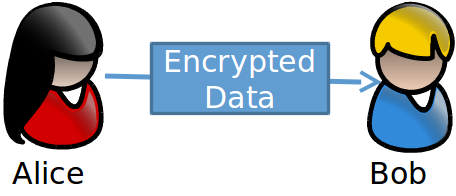
Encryption doesn't protect "metadata:" who you are and who you are talking with. That requires anonymity.
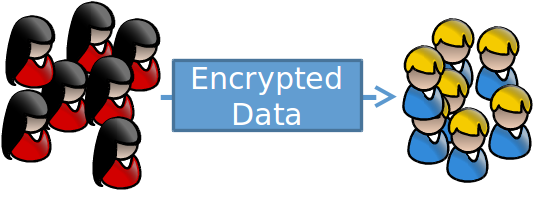
Solutions
- VPNs / Single-hop proxies: TorGuard, IPVanish, Cloak

- Anonymizing networks: Tor / I2P

VPNs

- Very fast
- Delegating responsibility of Web traffic to VPN
- VPN must be trusted
- Vulnerable to ISP level adversary
VPNs
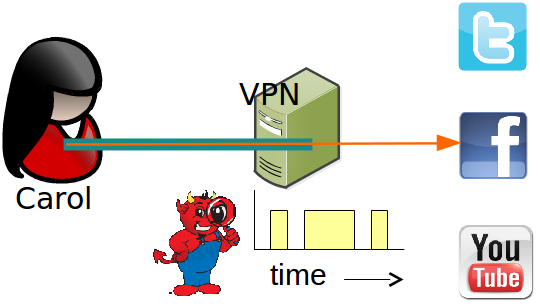
- Very fast
- Delegating responsibility of Web traffic to VPN
- VPN must be trusted
- Vulnerable to ISP level adversary
Tor

- Performance improving every day
- Offers more security than VPNs
- Still vulnerable
Tor
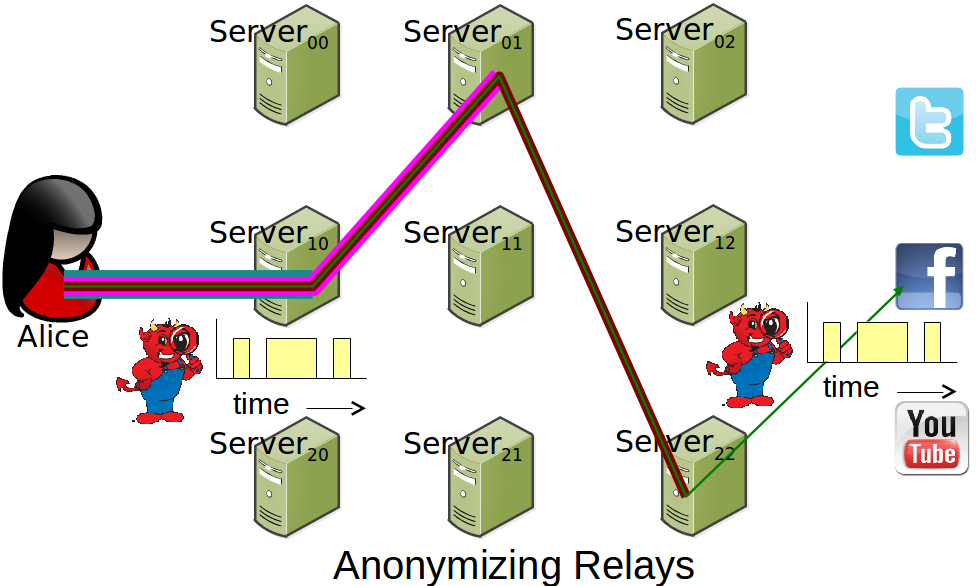
- Performance improving every day
- Offers more security than VPNs
- Still vulnerable
PriFi
- Organization/metro network
- Users transmit equal length streams synchronously producing untraceable anonymized traffic
- External adversaries learn only output
- Internal adversaries know online client set
- Builds on Dissent and hence DC-nets to offer strong anonymity
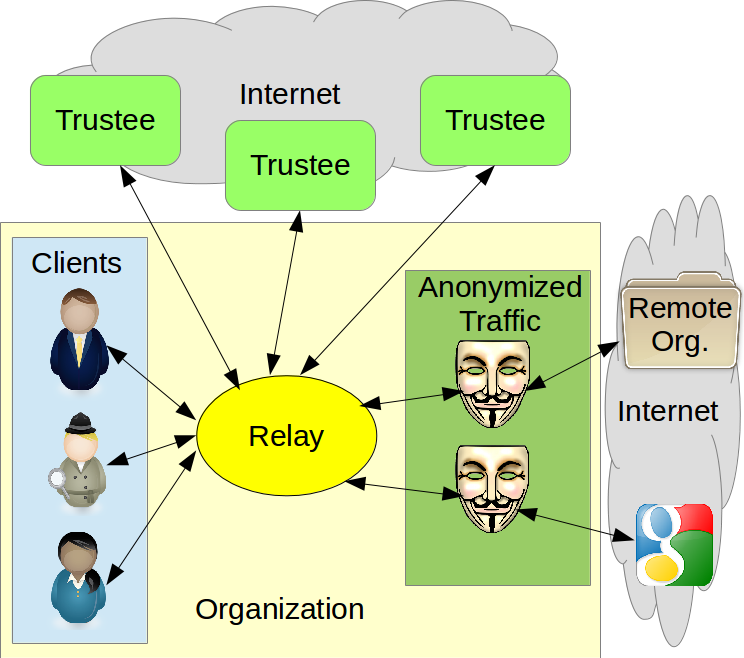
DC-Nets
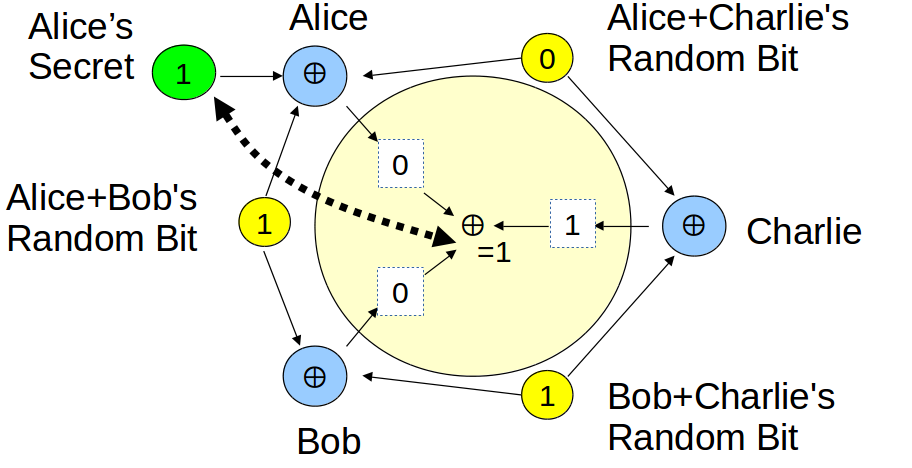
- Each pair have a shared secret (random bit)
- Xor shared secrets and optional cleartext, publish
- Xor published content, reveal anonymous cleartext
Practical Challenges

- Scheduling -- cannot trivial handle simultaneous cleartext
- Churn -- must restart transmission upon any disconnection
- Integrity -- consensus on output
- Disruption -- malicious participant can anonymously jam channel
Dissent (OSDI'12)
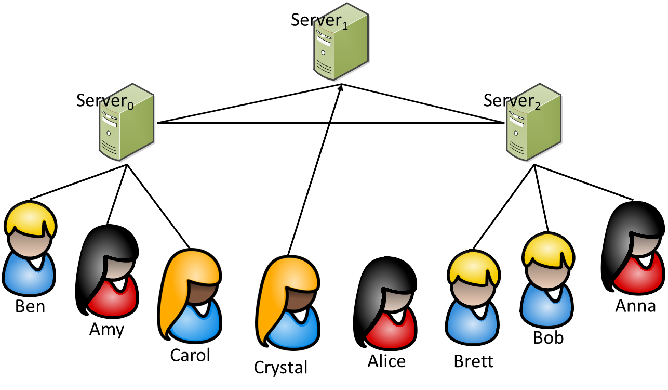
- Delegate workload to highly-reliable servers
- Clients online status not critical for protocol completion
- Trust that at least one server is honest without knowing which
- Every exchange requires 4 server-to-server exchanges
Dissent Overheads
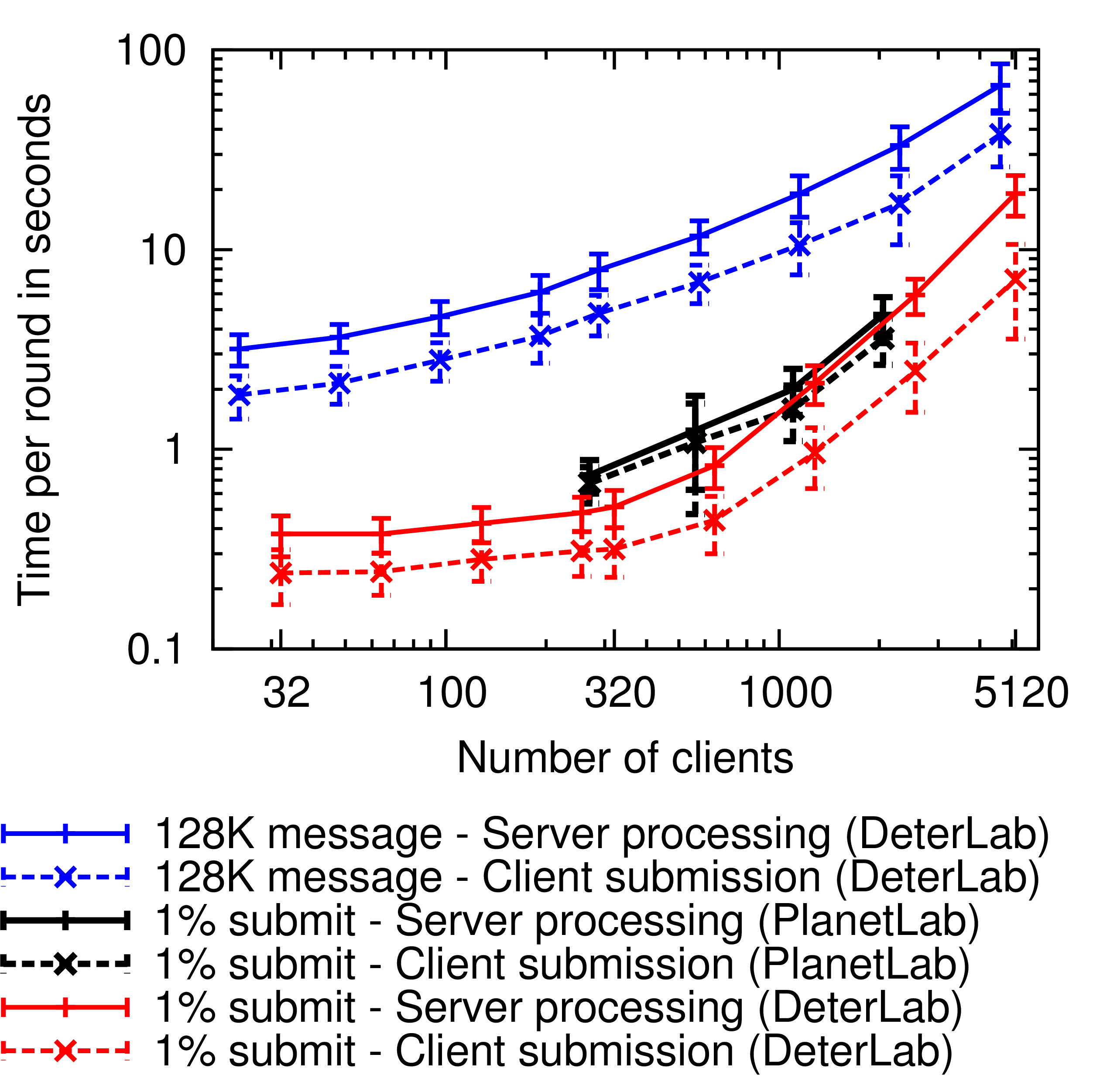
- Clients have 50 ms delay / 100 Mbps shared uplink to servers
- Servers 10 ms LAN w/ 100 Mbps links
- Want servers distributed, more server overhead, but harder for attackers to compromise servers
- Want clients close together, less client costs, harder to distinguish unique individuals
- Must remove servers from critical path
PriFi

- Removes trust from critical performance loop
- Clients and trustees perform DC-nets with untrusted middleman handling ciphertext aggregation and Internet routing
- Retains Dissents features without per-exchange communication between trustees and clients
Moments of Stability

- Server's exchange client set to determine what to generate
- Insight -- Keep static client set for a period of time -- interval
- Result -- Trustees can produce ciphertext independent of clients
- New clients must wait until next interval
- Departing clients pause exchanges until following interval
Client Enforced Integrity

- Must ensure all clients obtain same output
- Clients can perform internal integrity check
- Receive exchange output, sign it, transmit to relay
- Relay receives signatures and broadcasts
- Clients verify, process output
- Optimization 1: Composite signatures
- Optimization 2: Use previous exchanges output to encrypt next exchanges ciphertext
Resistance to Disruption
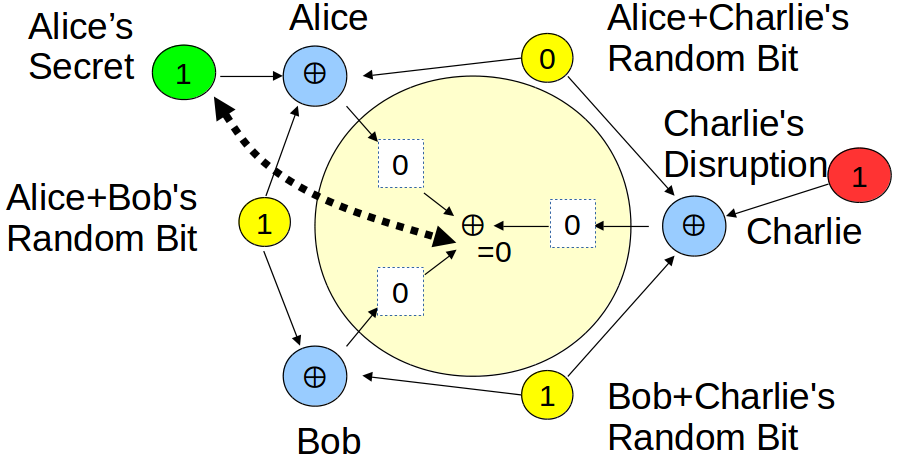
Resistance to Disruption
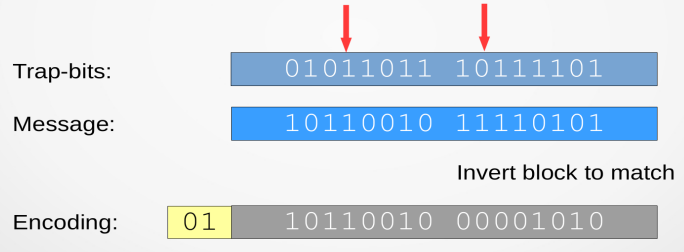
- Introduce random trap bits
- Anonymous sender never touches trap bits
- Trap bits -- shared secrets between sender and trustees
- Sender can embed message around trap bits
- Trustees learn trap bits at end of interval and verify output
- If a trap bit is flipped, perform Dissent accountability
Assigning Windows
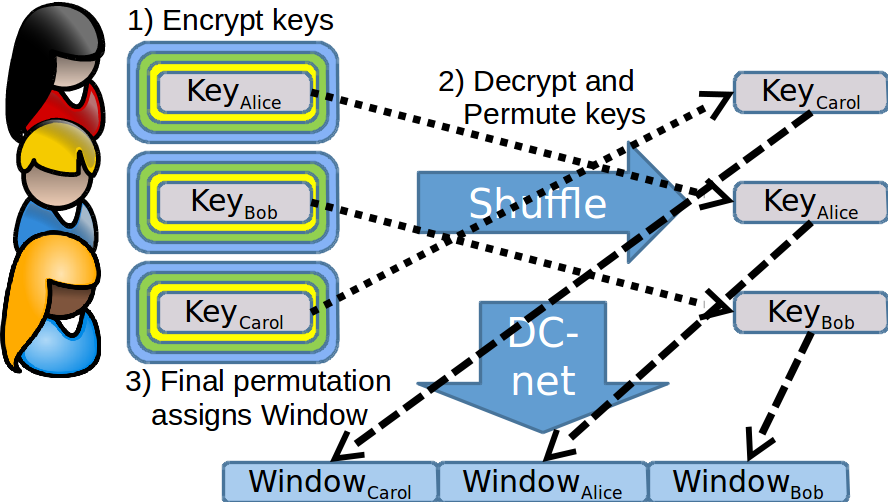
- Assign windows and trap bits
- Runs outside of critical loop
- Clients need not participate -- Shared secret can be produced via trustees
Preliminary Results

- 3 Trustees, 32 client machines
- Measured delay for performing 128KB HTTP GET
- Take-away: Trustee delay irrelevant
- Written in Python, in midst of rewriting in Go
More and More Challenges
- Scale beyond a single relay?
- Broadcast trees
- Support VPN clients (remote parties)?
- Multiple DC-net channels, different rates
- Handle intersection attacks?
- Buddies CCS'12
- Selecting trustees
- Trusted providers, e.g., social networks (CryptoBook -- Hotnets '13)
- Randomly from a clouds of trustee providers (Secure random selection of relay selection in Tor)
Conclusions
Performance gains by using trustees outside the critical performance loop:- Trustees produce ciphertext independently and parallely of clients
- Trustees can create schedules without client interaction
- Trustees can detect disruption outside of interval
- Don't be afraid to give the clients some work (integrity)